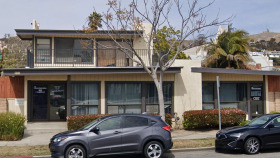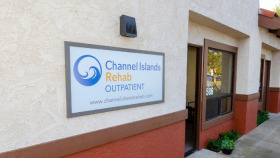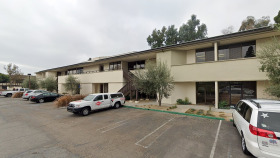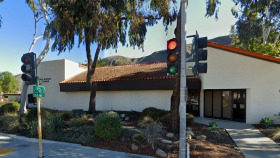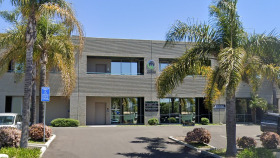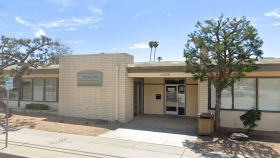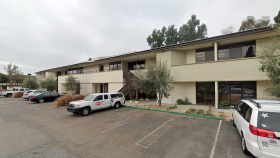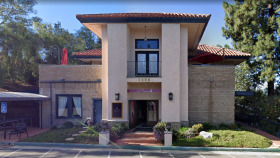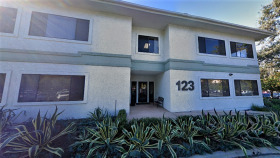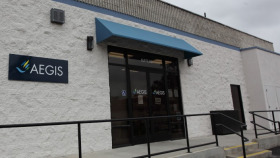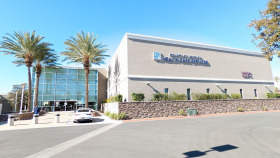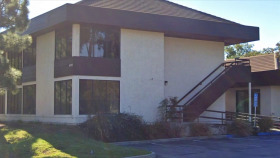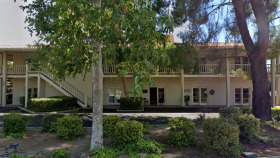How Do You Pay for Addiction Treatment in Ventura?
Most accredited Ventura drug rehabs accept multiple forms of payment, including private and public health insurance. Several facilities also offer discounted and even free programs to qualifying individuals.
Low-Cost and Free Drug Rehab Centers in Ventura
If you’re ready to enroll in a short-term or long-term addiction treatment program but lack the means to pay for it, you can still get help. The following types of centers may be able to serve you regardless of your ability to pay:
Government-Funded Treatment Centers
These facilities get funding from state and federal sources. That funding allows them to provide significantly discounted or free services for California residents with limited or no financial resources.
Methadone Clinics
These facilities provide medication-assisted treatment (MAT) for people with opioid-use disorders. Many receive government funding and grants to provide low-cost and free help to those in need, including persons experiencing homelessness.
Sliding-Scale Facilities
These centers use a variable fee scale that bases each patient’s costs on their income. The lower a person’s annual household income is, the less their program will ultimately cost.
Paying for Treatment With Private Insurance
If you have a private marketplace plan or an employer group plan, your insurance can help you pay for care at various facilities in Ventura.
Keep in mind that each plan’s coverage details, stipulations, and provider network vary, so if you’re unfamiliar with your benefits, call your insurer to get a full breakdown. You can also ask for a list of local addiction treatment centers that are in network with your plan.
Paying With Medicaid
California Medicaid (Medi-Cal) covers several substance abuse services, including:8
- Screenings and assessments
- Detoxification
- Inpatient
- Outpatient programs (PHP, IOP, and SOP)
- Medication-assisted treatment (MAT)
- Group and individual therapy
- Therapy for co-occurring mental health disorders
If you’re currently a beneficiary, you can use your insurance to pay for care at seven facilities and/or detox centers in Ventura, and within 10 miles of the city.7 If you need health insurance, you may be eligible for Medi-Cal if you have a low income, live with certain disabilities, or are pregnant.9
Paying With Medicare
Medicare provides insurance plans for people who are 65 years of age and older and some younger individuals who live with chronic disabilities.10 If you’re a Medicare beneficiary, your insurance can help you pay for various medically necessary addiction services, including:11
- Substance abuse screenings and assessments
- Inpatient rehab
- Outpatient
- Medication-assisted care for opioid or alcohol dependence
To get coverage, your program must be recommended by a licensed healthcare provider, and enroll in a Medicare-approved facility. Within 10 miles of Ventura, you’ll find at least five treatment centers that accept Medicare plans.7
How Does Ventura Compare in Alcohol and Drug Use?
Coastal Ventura, California, is known for its beautiful beaches and near-perfect weather year-round. However, from 2019 to 2021, Ventura County saw a 110% increase in overdose deaths.1 To help prevent such fatalities, there are roughly a dozen accredited drug rehab centers in Ventura, most of which take private health insurance, Medicare, or Medi-Cal.2 Some local facilities even offer highly discounted or free treatment and therapy services to individuals with limited or no financial resources.
Recent alcohol and drug use statistics for the city of Ventura and Ventura County as a whole include:1, 4, 5, 6
Ventura County males are roughly 157% more likely to overdose than females.
From 2019 to 2021, county-wide EMS calls for opioid-related overdoses increased by nearly 214%.
Alcohol and Drug Laws in Ventura
California Good Samaritan Overdose Prevention Law
This law protects individuals who call 911 for a suspected overdose from a drug-related arrest or conviction. However, it only protects those who have small quantities of illicit substances and do not intend to distribute them.
If you witness what you believe is an overdose, call emergency medical personnel immediately, as your call may save someone’s life. If you’re worried about the legal repercussions of using drugs or being involved in an overdose situation, this law protects you from prosecution.
Employee Protections for Addiction Treatment in California
Under California Labor Code Section 1025-1028, employers with 25 or more staff members must make reasonable accommodations for employees who voluntarily participate in an alcohol or substance abuse program.
Accommodations may include unpaid time off with job protection, vacation time, or permission to use sick leave while getting help. In addition, the California Family Rights Act (CFRA) or the Family and Medical Leave Act (FMLA) may also provide employees the right to time off.
The California Ethical Treatment for Persons With Substance Use Disorder Act
Under Senate Bill 349, all Ventura and California facilities must comply with certain requirements. This bill states that all persons receiving care at California facilities have a right to respect, privacy, and ethical treatment. It also outlines requirements for evidence-based care, provider and staff credentials, individualized plans, dual diagnosis treatment, and more.
Choosing the Right Level of Care
The level of care you need will depend on a number of factors, including your addiction status, history of substance abuse, living situation, and your provider’s recommendation.
Medical Detox
Medical detox is for for addressing withdrawal symptoms. Medical detox does not replace addiction treatment. However, it is the initial step of the recovery process. You can expect it to help you by preventing the serious physical and emotional symptoms that you experience when you stop using drugs and alcohol.
Inpatient
Inpatient programs are intensive and delivered in a hospital setting. You can expect to stay in inpatient rehab for one to three months or more. Inpatient services offer 24-hour access to an interdisciplinary team of healthcare professionals who can attend to your medical and nursing needs. The benefits of an inpatient stay include 24-hour care from the interdisciplinary team, a structured environment, and the absence of a stressful and distracting home environment.
Partial Hospitalization Programs (PHPs)
PHPs provide a step-down option after you complete a residential program. You can expect to receive care for six to eight hours on weekdays. A PHP may be appropriate if your home environment supports recovery, but you need some structure to prevent relapse. A benefit of the PHP is that you do not spend the entire day at the facility.
Intensive Outpatient Programs (IOPs)
IOPs are similar to residential programs in their intensity. However, treatment is delivered in an outpatient setting. A benefit of the IOP is that you do not have to stay overnight at the facility.
Standard Outpatient
Standard outpatient programs offer care during the day, in the evenings, before or after school or work, and on the weekends. You may receive standard outpatient care if you have mild to moderate addiction. They may be best after you complete a more intensive rehabilitation program. The flexible schedule can be beneficial, especially if you want to continue with work or school or have other personal commitments.
Aftercare
Aftercare is any type of ongoing care or support you receive after you complete treatment. Many continuing care options are available, depending on your needs, including sober living housing, group or individual counseling, 12-step groups, like Alcoholics Anonymous, Narcotics Anonymous, Smart Recovery, and peer support groups.
You can choose from many accredited drug rehabs in Ventura, which can make finding the right program slightly overwhelming. If you need assistance determining which facility is right for you, we’re here to help, day or night. Please call our confidential helpline at
800-681-1058
(Who Answers?)
to get the help you need, today.
Should You Travel for Drug and Alcohol Rehab in Ventura?
 If you’d like to visit a family member who’s in long-term alcohol or drug rehab in Ventura or are interested in traveling to the city for care, you’ll have no problem getting around. Ventura has plenty of transportation, lodging, and entertainment opportunities to suit virtually any need or taste.
If you’d like to visit a family member who’s in long-term alcohol or drug rehab in Ventura or are interested in traveling to the city for care, you’ll have no problem getting around. Ventura has plenty of transportation, lodging, and entertainment opportunities to suit virtually any need or taste.
Resources
- Ventura County Opioid Abuse Suppression Taskforce. (n.d.). Addressing the Opioid Crisis in Ventura County.
- California Department of Public Health. (2018, June 18). Naloxone Standing Order Frequently Asked Questions (FAQ).
- California Legislative Information. (2022). Senate Bill No. 349 Bill Text.
- FindTreatment.gov. (n.d.). FindTreatment.gov.
- Centers for Disease Control and Prevention, National Center for Health Statistics. CDC Wonder Online Database. (2021). Underlying Cause of Death, 1999-2020 Results, Deaths occurring through 2020.
- Ventura County Community Health Improvement Collaborative. (2022). Community Health Needs Assessment 2022.
- Ventura County Public Health, Health Matters in Ventura County. (n.d.). Substance Abuse, Health / Alcohol & Drug Use.
- Substance Abuse and Mental Health Services Administration. (n.d.). FindTreatment.gov.
- California Department of Health Care Services. (2022). Drug Medi-Cal Organized Delivery System (DMC-ODS) Beneficiary Handbook.
- Benefits.gov. (n.d.). California Medicaid.
- U.S. Department of Health & Human Services. (2014, September 11). Who is eligible for Medicare?
- Department of Health and Human Services, Centers for Medicare & Medicaid Services. (2016). Medicare Coverage of Substance Abuse Services.
- City of Ventura. (n.d.). Public Transit.
- City of Ventura. (n.d.). City Beaches.
- City of Ventura. (n.d.). City Golf Courses.
- City of Ventura. (n.d.). City Parks & Facilities Map.


